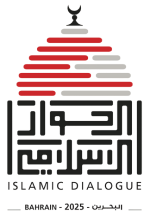The fifth session of the Intra-Islamic Dialogue Conference – One Nation… One Shared Destiny convened under the title “Responding to the Challenges of Achieving Intra-Islamic Understanding”.
The session was chaired by Professor Dr. Abbas Shoman, Secretary General of the Council of Senior Scholars at Al Azhar, with participation from esteemed scholars across the Islamic world.
Ayatollah Dr. Sayyed Abu al Qasim al Dibaji, Secretary General of the World Islamic Jurisprudence Organisation, emphasised that the conference represents an important event in strengthening unity among Muslims and renewing commitment to shared values to confront common challenges.
He noted that Islamic unity is not merely a slogan for events or words repeated on occasion, but a way of life and a cornerstone for achieving progress and dignity.
He stressed the need for practical steps through constructive dialogue among scholars of various sects, reinforced by media discourse and educational curricula that instil a culture of understanding.
Professor Dr. Mostafa Bajou, Professor of Islamic Jurisprudence at the University of Ghardaia and member of the High Islamic Council in Algeria, discussed the challenges that may hinder intra-Islamic understanding and how to overcome them.
Prof. Dr. Bajou highlighted that opposition is inherent in any endeavour aimed at the betterment of humanity, particularly in prophetic missions culminating in the message of Islam.
Overcoming these challenges demands wisdom and genuine effort to cultivate an environment that supports the Islamic nation’s civilizational progress, he added.
He emphasised that this can be achieved through a sincere commitment to meaningful Islamic dialogue, fostering deeper understanding and greater unity within the community.
Sheikh Dr. Abdul Latif Mahmoud Al Mahmoud, a member of the Supreme Council for Islamic Affairs, presented a paper alongside Sheikh Dr. Fareed Al Miftah and Sheikh Dr. Ibrahim bin Rashid Al Muraikhi.
Sheikh Dr. Al Mahmoud emphasised that the diversity of Islamic thought should be a unifying factor rather than a source of division, as differences in interpretation based on sound jurisprudential principles are a natural part of religious scholarship.
He noted that early Muslim scholars, despite their differences, maintained mutual respect and cooperation,and that avoiding discord requires understanding each perspective while upholding the fraternal bond mandated by Islamic teachings.
Sheikh Nasser Sheikh Ahmed Al Asfour, a member of the Supreme Council for Islamic Affairs, examined the challenges to achieving intra-Islamic understanding, with contributions from Dr. Suleiman Sheikh Mansour Al Sitri and Sheikh Mohammed Hassan Abdul Mahdi Al Sheikh.
The discussion underscored that Islam, with its noble principles, calls for coexistence, tolerance, and unity. They also noted that the early Muslims successfully spread the faith through these values, setting a historical precedent. Today, the Muslim community is capable of fostering mutual understanding and harmony to confront contemporary challenges.
The paper emphasised that while challenges exist, they are not insurmountable; the solution lies in returning to the essence of Islamic teachings, focusing on shared principles, and adopting practical initiatives that address the roots of division.
The session also highlighted proposals to enhance theological and doctrinal dialogue among scholars, develop religious education curricula to instil values of tolerance and understanding, support media platforms that promote balanced discourse, and establish institutions that unify Muslims on common grounds.
Sir Iqbal Abdul Karim Sacranie, Senior Advisor to the Muslim Council of Britain, underscored the importance of achieving internal Islamic understanding, describing it as essential for the global Muslim community.
He noted that through dialogue, education, and cooperation, Muslims can overcome challenges and build a more cohesive ummah, reinforcing collective efforts based on shared Islamic values to achieve greater harmony.


